[ REHEARSAL NOTES ] IPHIGÉNIE EN AULIDE — IPHIGÉNIE EN TAURIDE
Share
Wednesday 5 June 2024 — Grand Théâtre de Provence — Festival d'Aix-en-Provence
The Festival d’Aix-en-Provence delves into the tragedy of the Atreides in this new two-part production, juxtaposing Gluck’s Iphigénie en Aulide and his Iphigénie en Tauride. Corinne Winters, in the title role, plays a woman with an extraordinary destiny, who transitions from victim to executioner over the course of the two operas: as the sole survivor of Aulis, she is confronted in Iphigénie en Tauride with the shadows of her past, during this suffocating and tragic single-setting opera set against the backdrop of the Trojan War. The role of the chorus is essential in these two operas: inherited from Greek tragedy, it accompanies and comments on the wanderings of the main characters. Magnified here by Tcherniakov, it is endowed with a dreadful dimension, embodying in Iphigénie en Tauride the ghosts of Iphigénie en Aulide.
3:30 pm, Wednesday 5 June: The choir of Le Concert d’Astrée has just arrived and is assembled in the ‘Big One’, the largest studio of the Grand Théâtre de Provence, for a rehearsal that marks a new phase in the rehearsal process. Stage director Dmitri Tcherniakov, renowned for his visionary approaches, greets the newcomers. The rehearsal — it is a scénique piano, as it is known in the world of opera, the purpose of which is to further explore the staging and make certain decisions before rehearsals with the orchestra begin — is focusing today on selected pieces from the two Iphigénie operas: in one of them, Iphigénie wanders among the choir, as if plunged into a nightmare. In a mix of French, English and Russian, the director becomes animated as he tries to convey the title role’s psychological state, being constructed week after week. He is assisted by Delia Roubtsova, his long-time collaborator, who provides partial translations and clarifies his remarks to the newcomers. Dmitri Tcherniakov gives the first placement instructions to the choir, specifying — with an extreme attention to detail, one of his defining traits — the speed and angle at which each person should turn, as Gluck’s overture plays on. Gripped by the image he himself is evoking, the director describes to the choir members, among the elements of the still rudimentary scenic design, the imaginary set that has already come to life in his head: ‘Here, imagine a very large scrim across the entire wall!’ ‘Turn slowly towards Iphigénie at a 20-degree angle!’
Far from superfluous, these instructions will save valuable time: the goal is to adopt the right habits now (Which door do I enter through? How should I stand? Should I look at Iphigénie as she moves within the choir?) so they avoid wasting time in future rehearsals.
The score is also being looked at today: Emmanuelle Haïm, the conductor; Simon Proust, her assistant; and Benoît Hartoin, on the piano and vocal coach, play the overture alone several times, so that the choir can absorb it. Earlier, as Dmitri Tcherniakov gave the choir his myriad positioning instruction, this team adjusted certain details of the score, and set a rallentando (‘gradual slowing down’) here and there to allow the score to breathe. The rehearsal resumes, combining all these new elements: performance of the music proposed by Emmanuelle Haïm, the various ‘cues’ given by the stage manager to ensure everyone is synchronised, and Dmitri Tcherniakov’s stage directions positioning everyone. Tomorrow, they will tackle a different scene and a different opera: the scéniques piano will go on, including several combat scenes from Iphigénie en Tauride, without the choir.
In a few weeks, all the pieces of the puzzle will be assembled, to reveal the full power of this spectacular fresco.
Aurore Flamion
Dramaturge of the Festival d'Aix-en-Provence
Translation: Donald Harris Stoudt
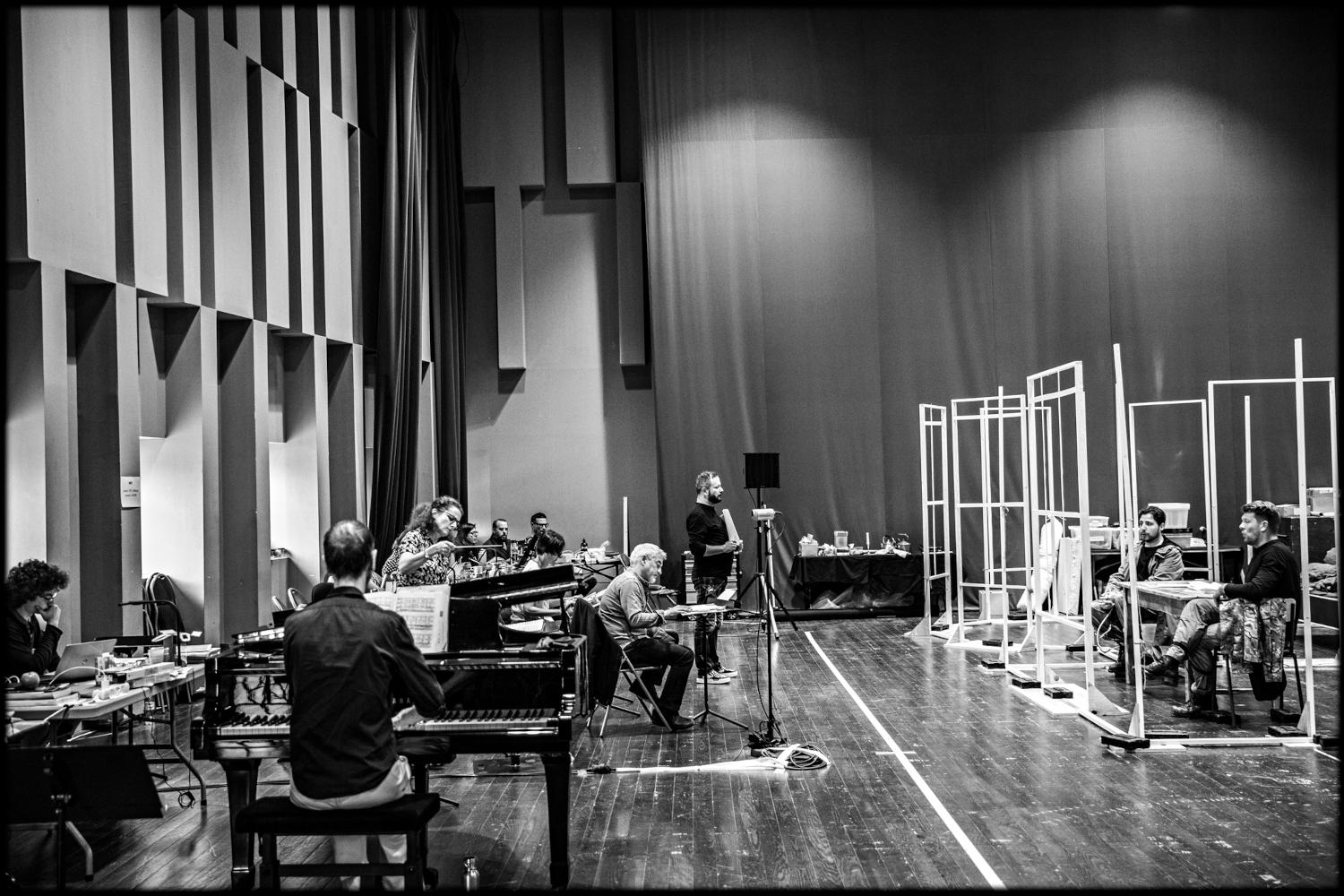
Rehearsals of Iphigénie en Aulide — Iphigénie en Tauride
2024 Festival d'Aix-en-Provence © Jean-Louis Fernandez
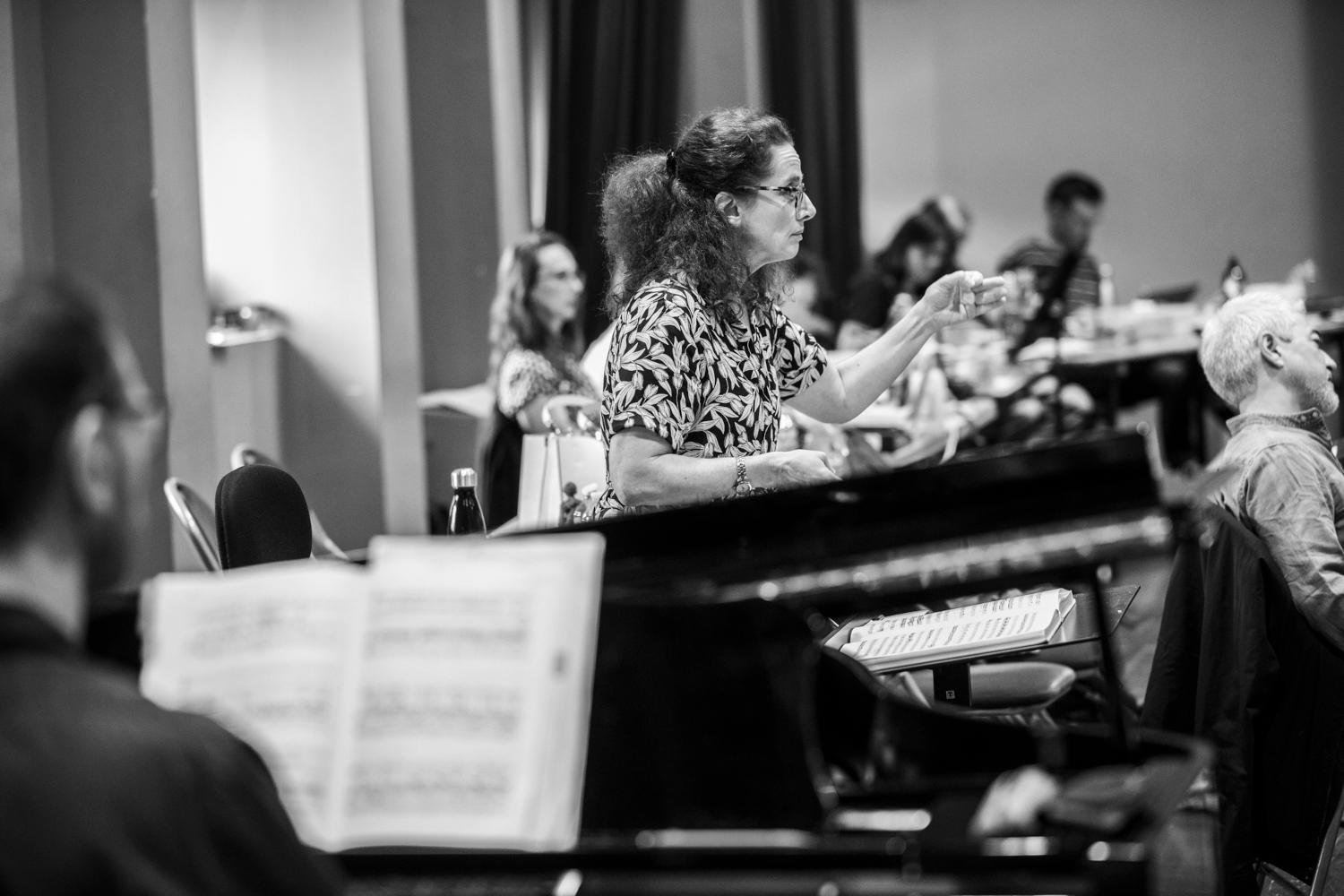
Rehearsals of Iphigénie en Aulide — Iphigénie en Tauride
2024 Festival d'Aix-en-Provence © Jean-Louis Fernandez
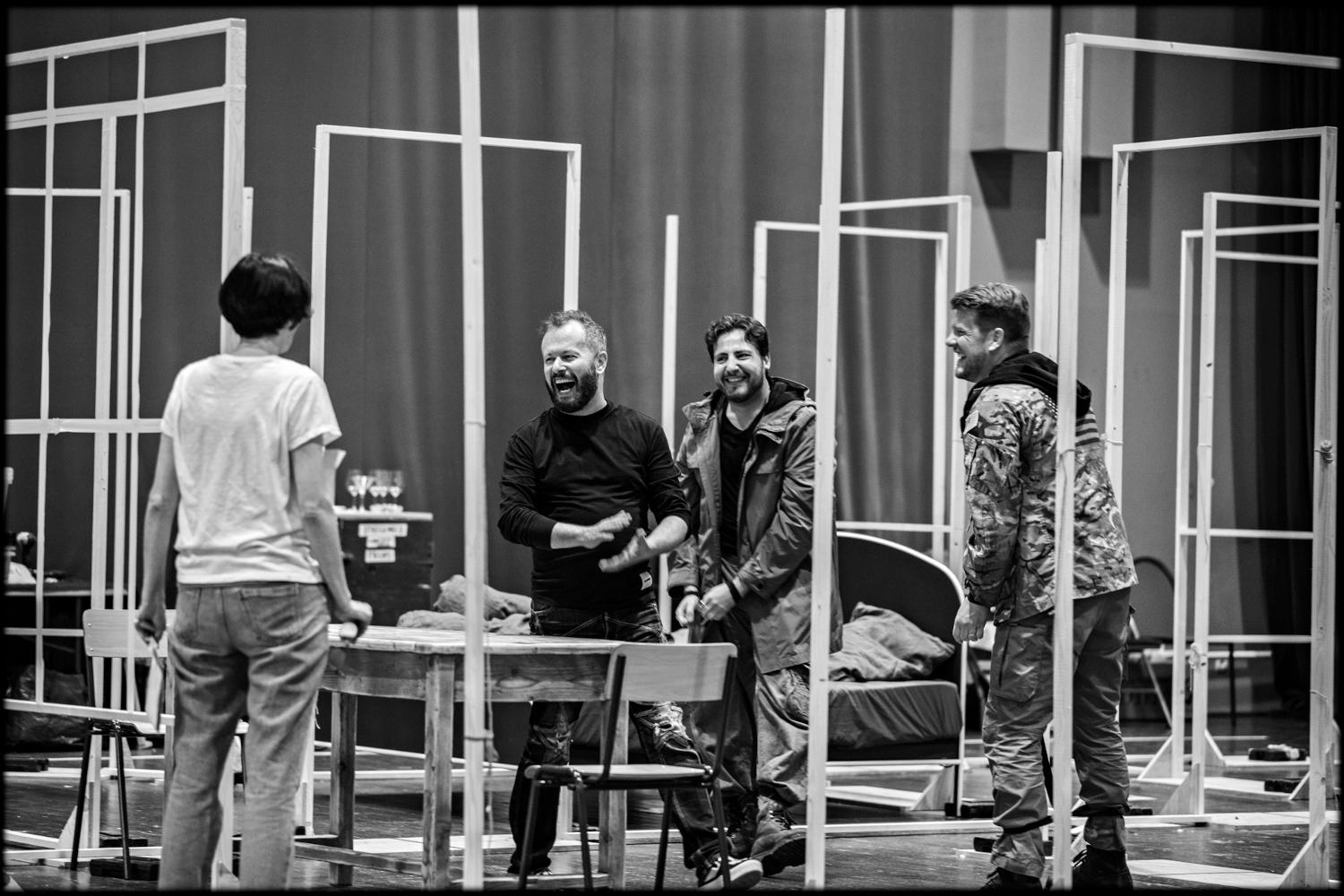
Rehearsals of Iphigénie en Aulide — Iphigénie en Tauride
2024 Festival d'Aix-en-Provence © Jean-Louis Fernandez
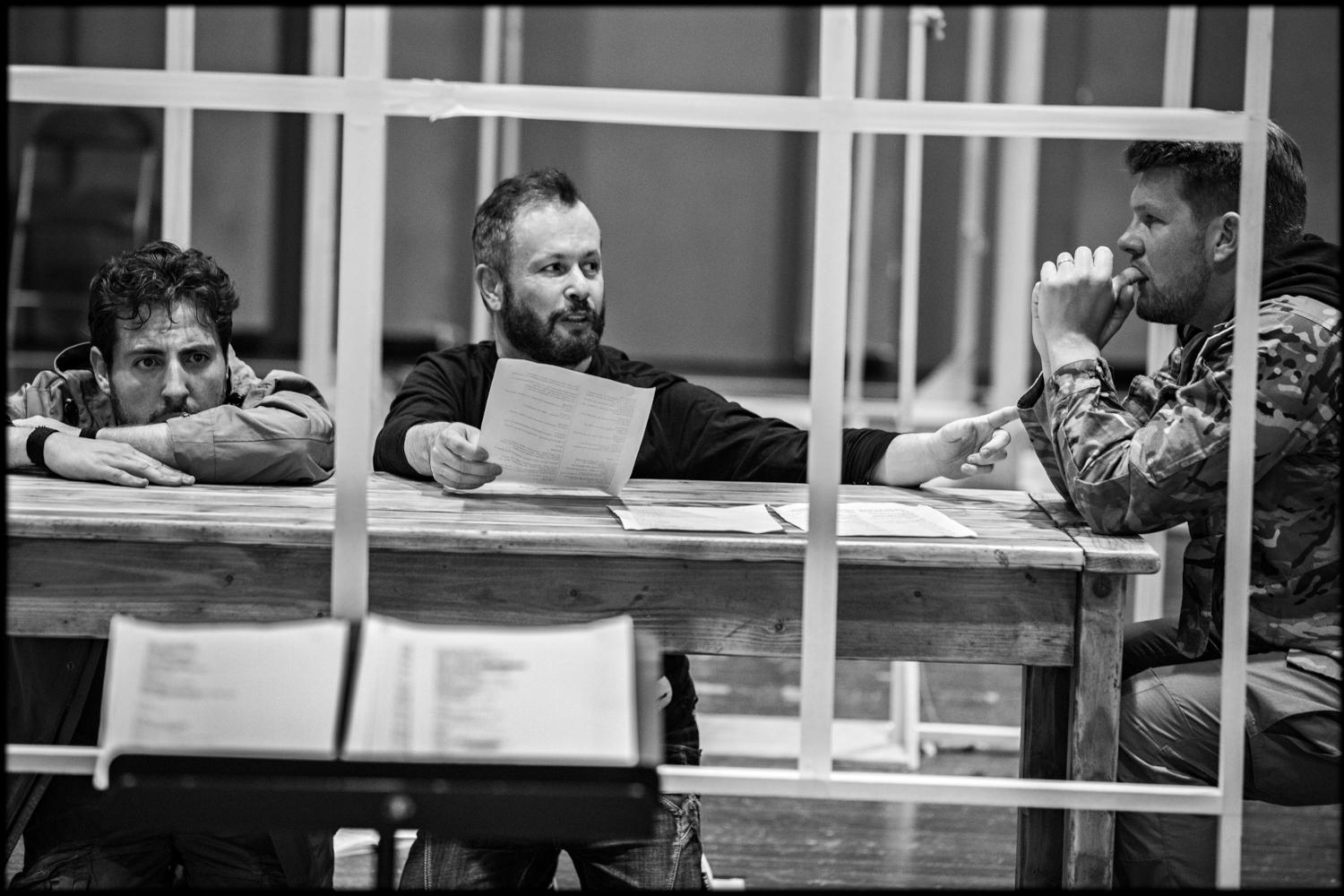
Rehearsals of Iphigénie en Aulide — Iphigénie en Tauride
2024 Festival d'Aix-en-Provence © Jean-Louis Fernandez
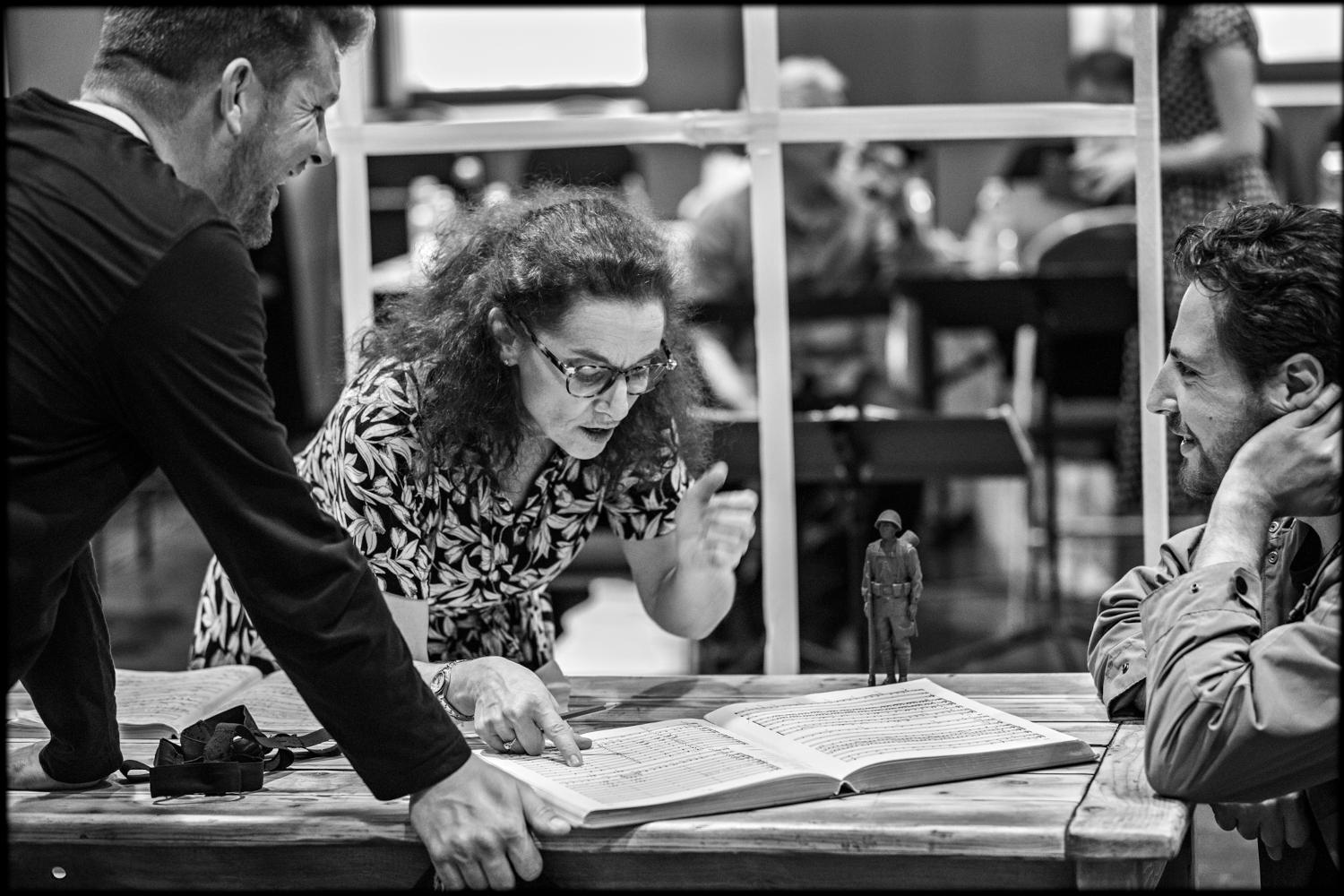
Rehearsals of Iphigénie en Aulide — Iphigénie en Tauride
2024 Festival d'Aix-en-Provence © Jean-Louis Fernandez
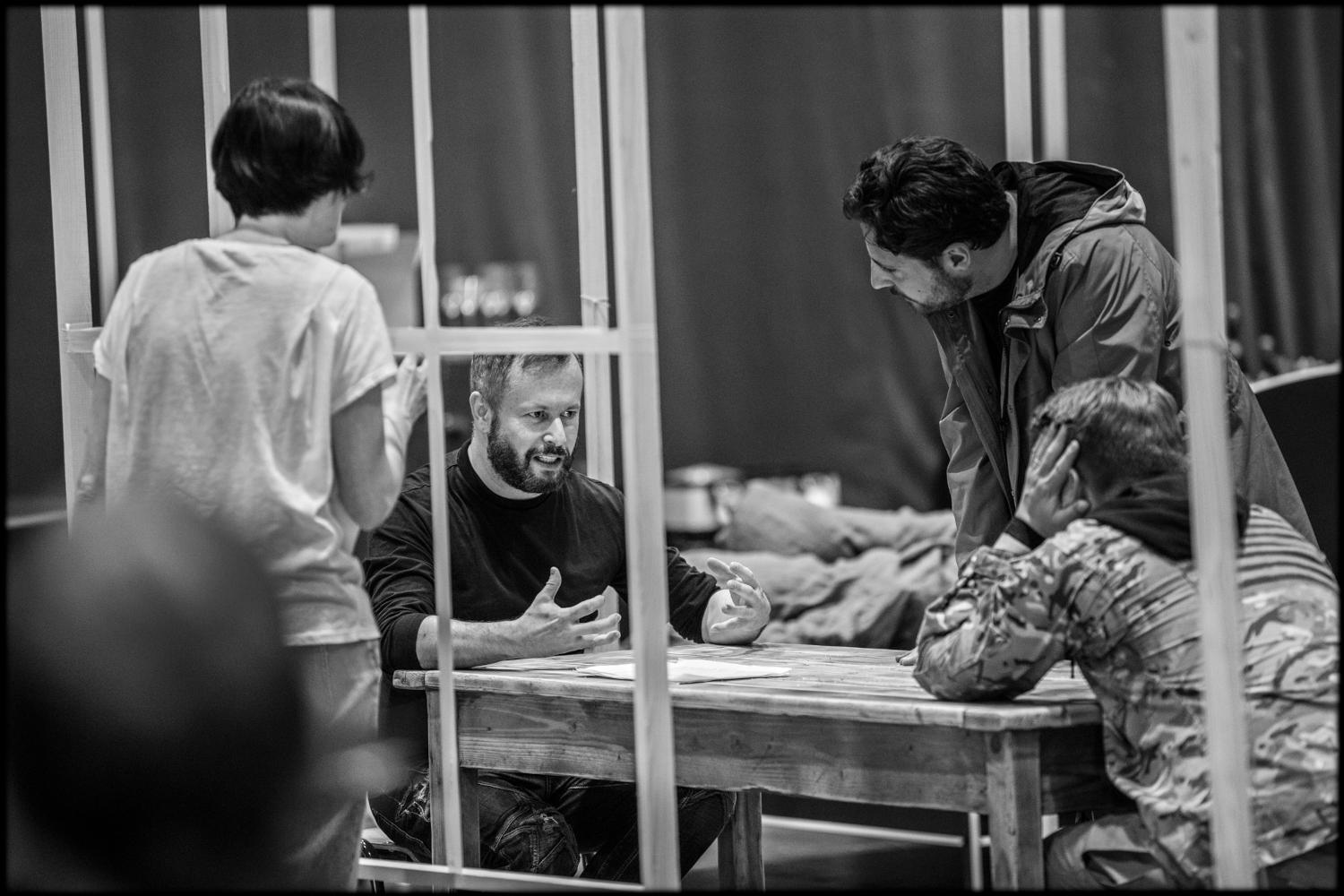
Rehearsals of Iphigénie en Aulide — Iphigénie en Tauride
2024 Festival d'Aix-en-Provence © Jean-Louis Fernandez
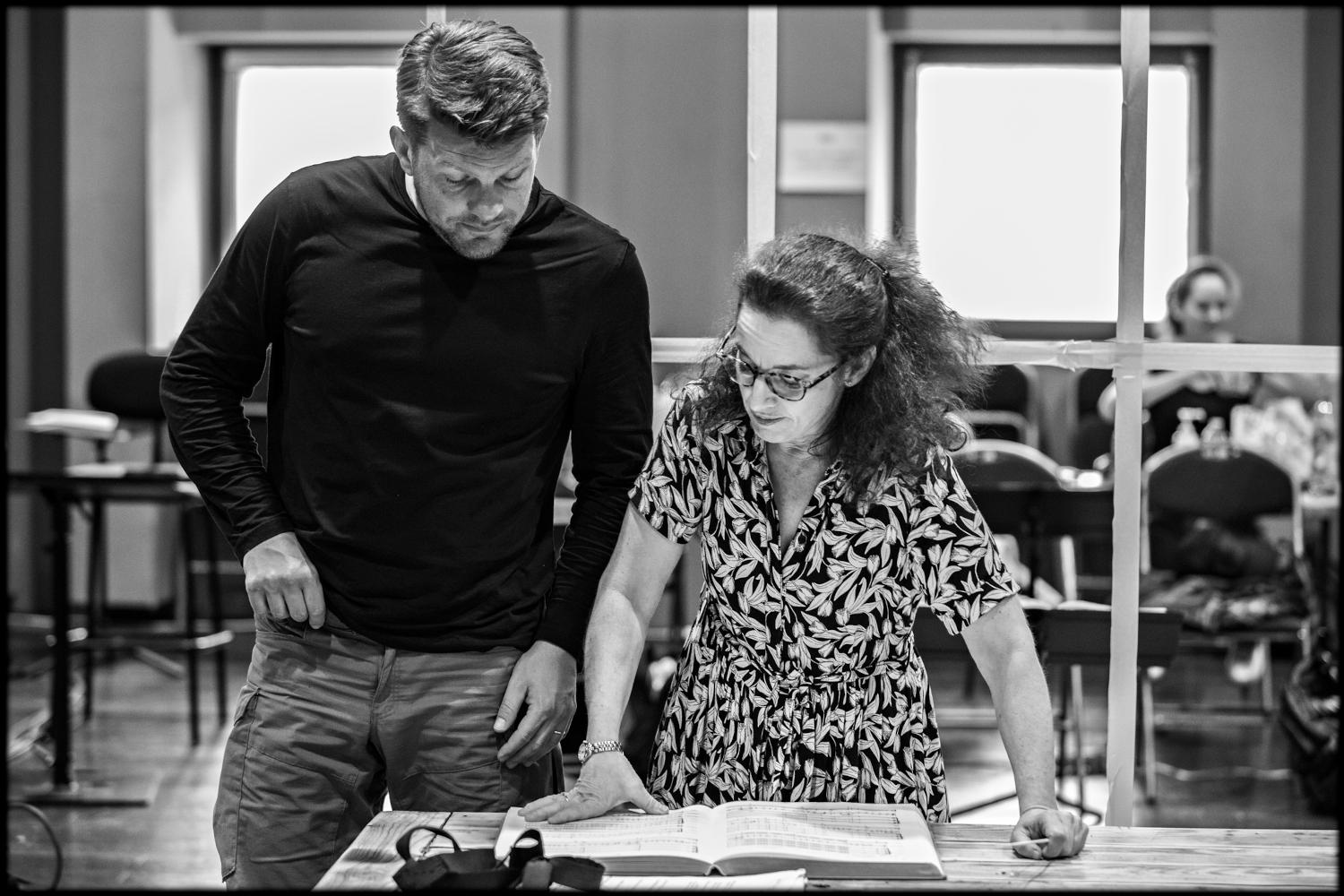
Rehearsals of Iphigénie en Aulide — Iphigénie en Tauride
2024 Festival d'Aix-en-Provence © Jean-Louis Fernandez
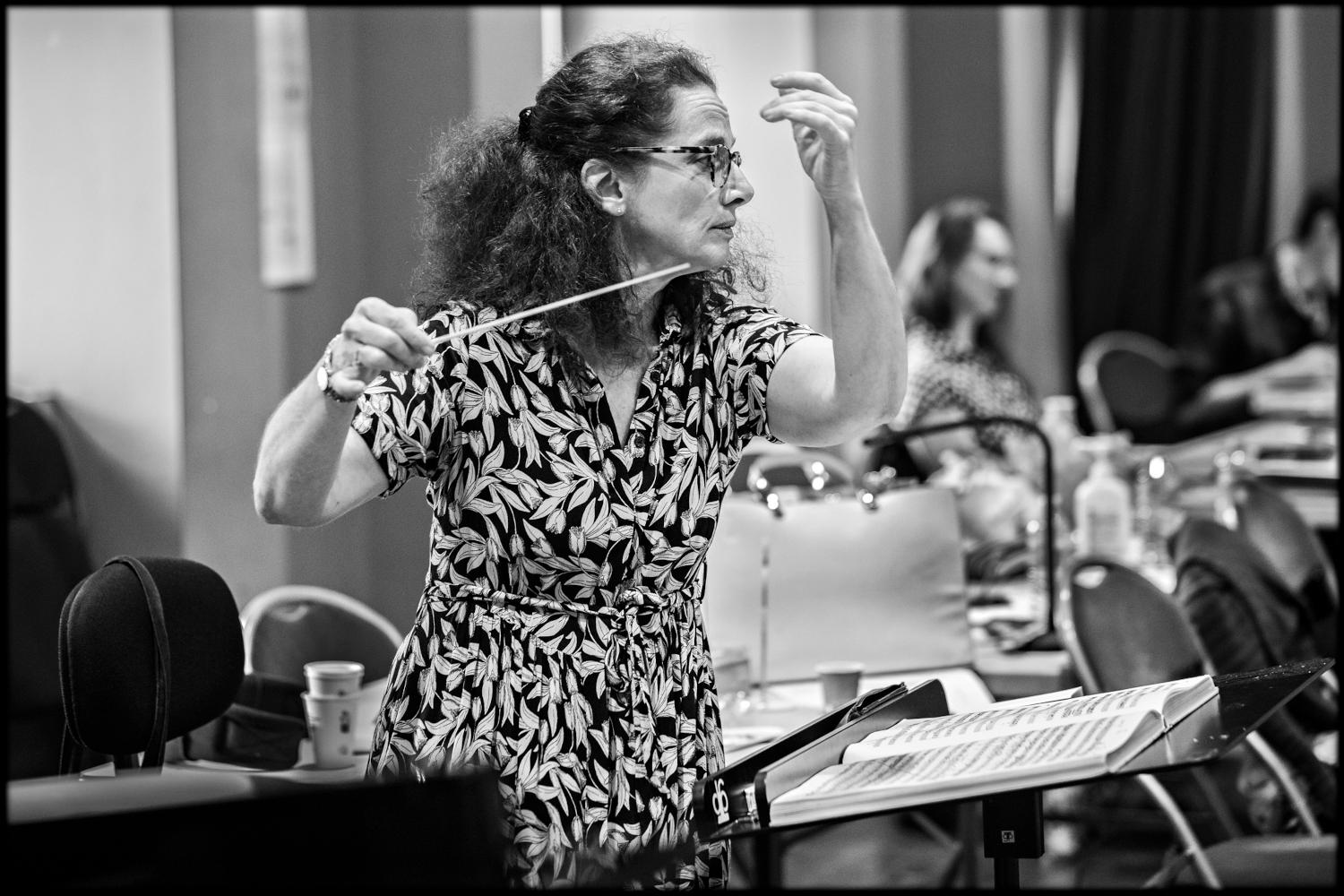
Rehearsals of Iphigénie en Aulide — Iphigénie en Tauride
2024 Festival d'Aix-en-Provence © Jean-Louis Fernandez
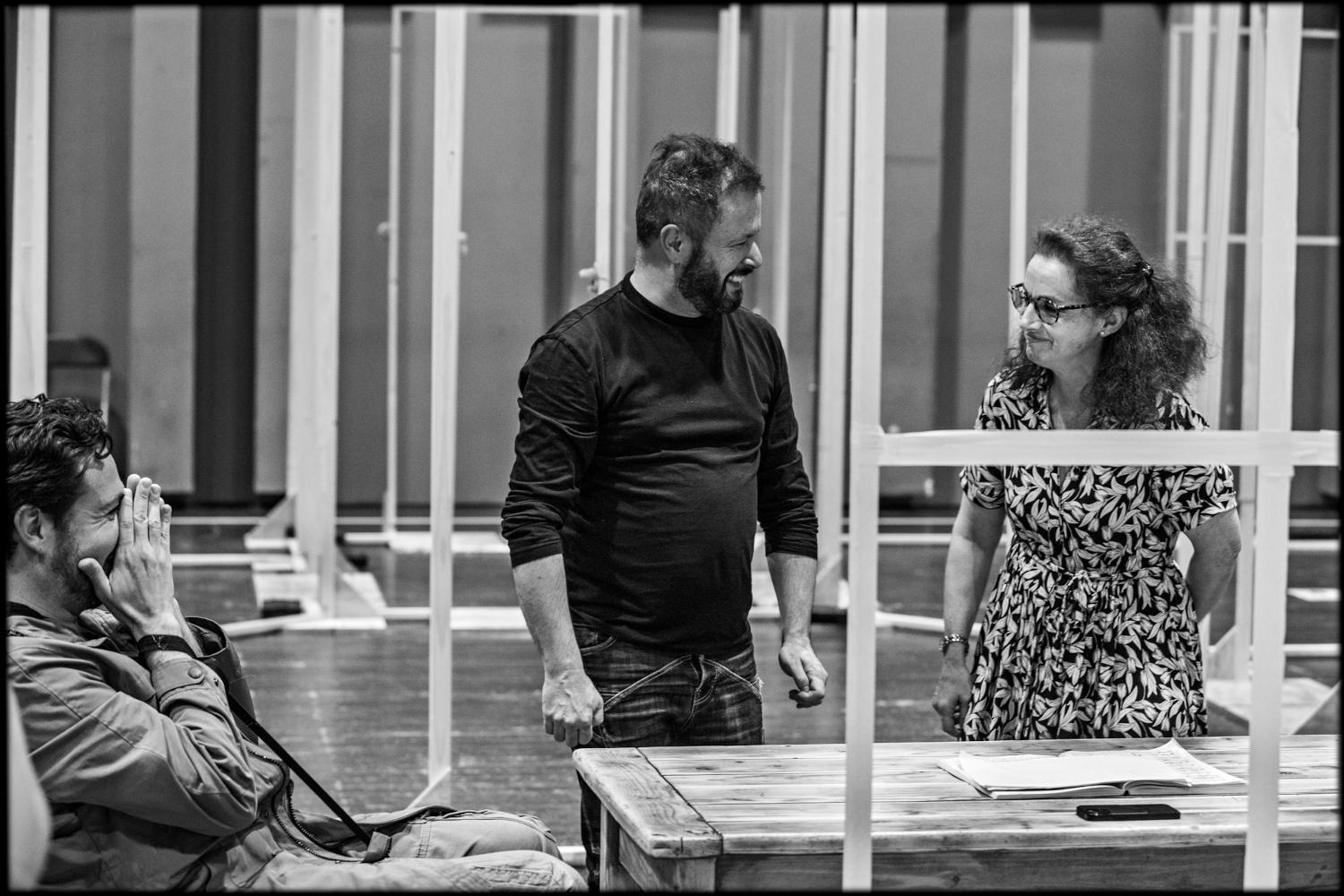
Rehearsals of Iphigénie en Aulide — Iphigénie en Tauride
2024 Festival d'Aix-en-Provence © Jean-Louis Fernandez